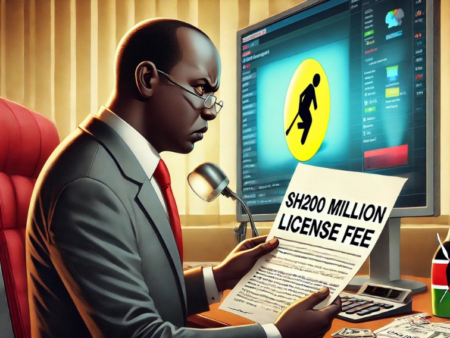Denis Miracles Aboagye, a presidential staffer, shared that Vice President Dr. Mahamudu Bawumia made a bold attempt to scrap the much-criticised electronic levy (E-levy), but the Cabinet shot down his proposal. This disclosure adds another layer to the ongoing debate surrounding the controversial tax.
Dr. Bawumia, who is gearing up to lead the New Patriotic Party (NPP) in the December 7 general elections, didn’t shy away from his stance on the E-levy during the party’s manifesto launch in Takoradi on August 18, 2024. He reiterated his commitment to abolishing the E-levy and the betting tax if he wins the presidency, positioning these moves as part of a broader strategy to reform the tax system and ease the financial burden on Ghanaians.
However, critics were quick to question why, if Dr. Bawumia is so opposed to these taxes, he hasn’t managed to persuade President Akufo-Addo to abolish them during their current tenure. The murmurs of dissent have grown louder, with some accusing the Vice President of not doing enough to fight these taxes while still in office.
Denis Miracles Aboagye, speaking on GHOne TV and monitored by GhanaWeb, defended Dr. Bawumia’s efforts, explaining that the Vice President indeed pushed for the abolishment of the E-levy within the Cabinet, but his proposal was ultimately rejected. Aboagye stressed that Dr. Bawumia is not the president and, therefore, does not have the final say on such matters.
“He has proposed it [abolishment of E-levy] to Cabinet, but Cabinet disagreed with him. He’s not the only person in government. He is not the president; he doesn’t take the ultimate decision,” Aboagye clarified.
Aboagye also pointed out the complexities of governance, noting that the Vice President and other ministers must adhere to the principles of collective responsibility. “When you go to Cabinet, there is something called collective responsibility. But the ultimate responsibility is with the president. So ultimately, when the cabinet takes a decision, we are all collectively part of it,” he explained.
This situation underscores the nuanced nature of political decision-making within a government. While Dr. Bawumia may have his ideas and vision, he is still part of a more extensive administration where decisions are made collectively. Aboagye’s comments highlight the challenges even high-ranking officials face in pushing their agendas within a democratic system.
As the election approaches, Dr. Bawumia’s commitment to abolishing the E-levy and betting tax will undoubtedly remain a key talking point, both for his supporters and his critics. Whether he can turn his campaign promises into reality if elected remains to be seen, but for now, the Vice President is making it clear where he stands.

